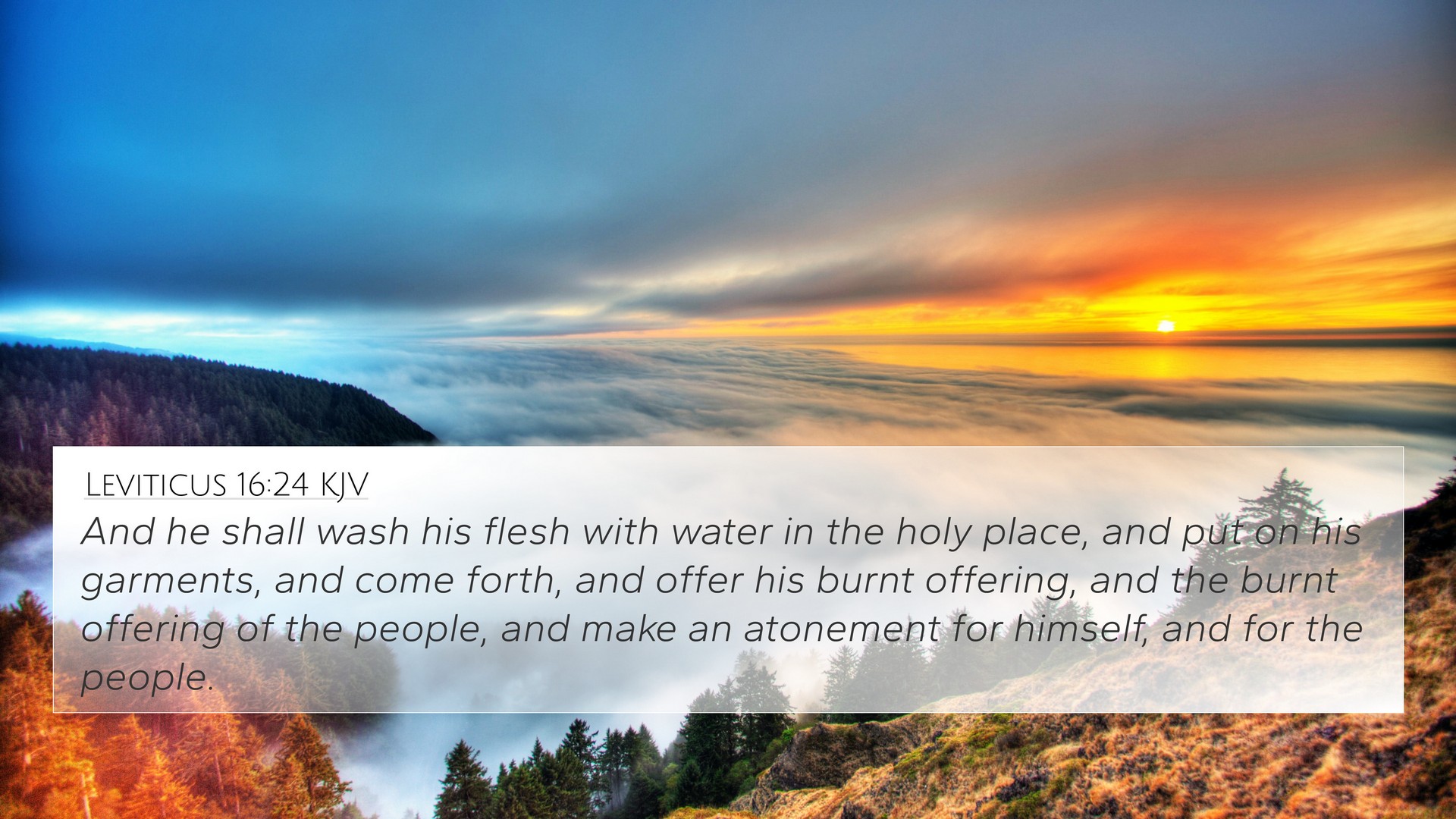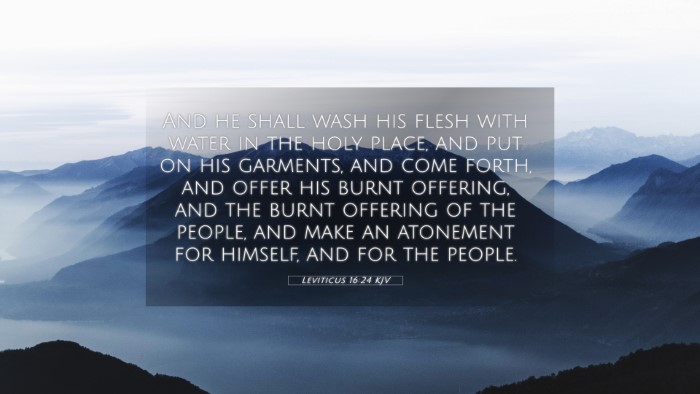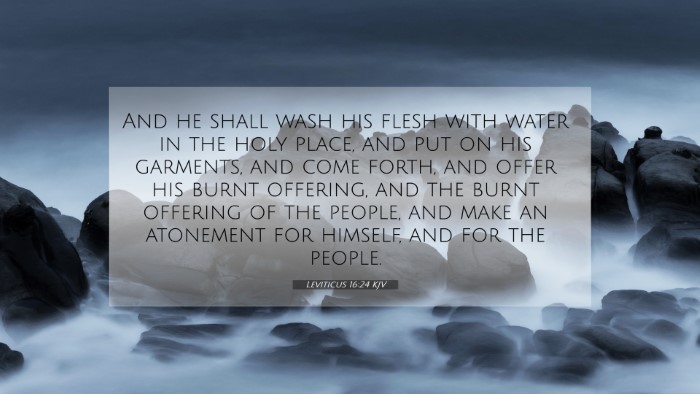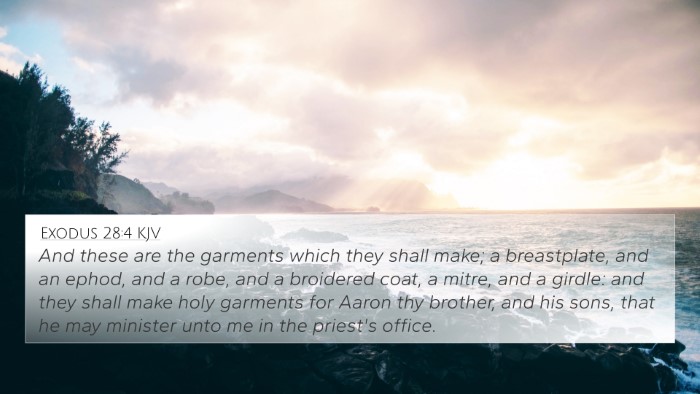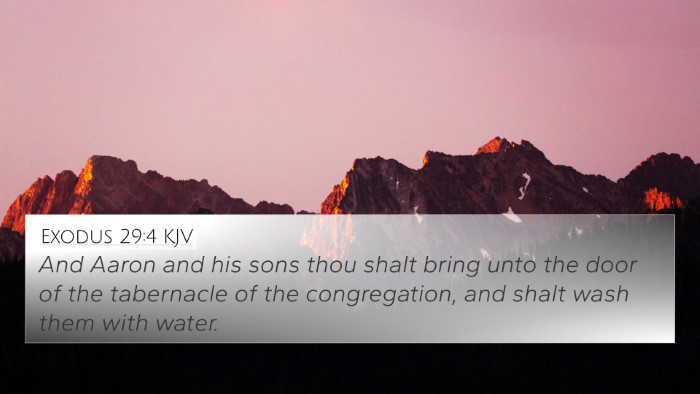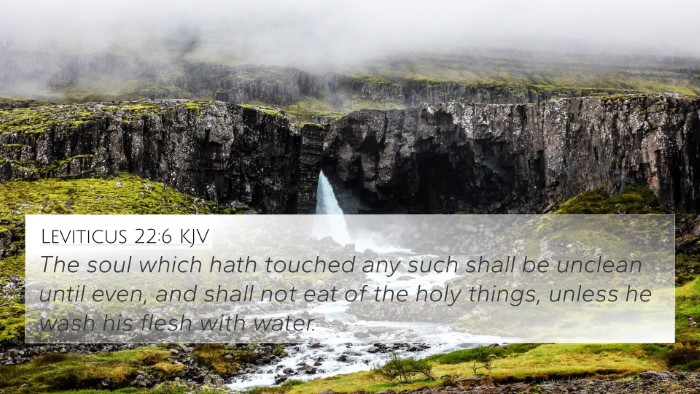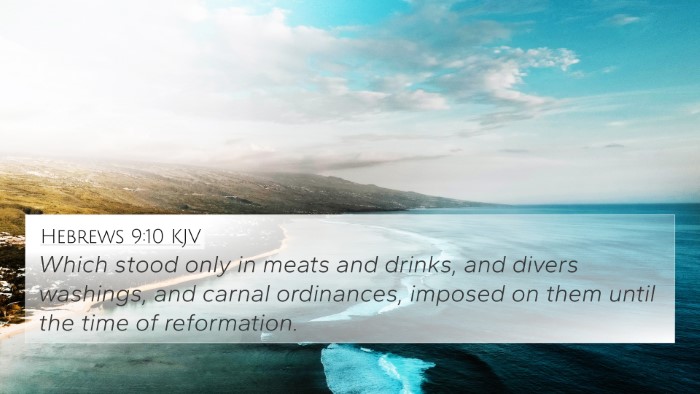Bible Verse Interpretation: Leviticus 16:24
Leviticus 16:24 describes the ceremonial cleansing involved in the Day of Atonement, emphasizing the act of presenting a scapegoat to the Lord. This passage holds significant thematic connections within the scripture, relating to atonement, sacrifice, and the need for purification from sin.
Summary of Leviticus 16:24
In this verse, we read about Aaron conducting the ritual involving the scapegoat, which represents taking on the sins of the people and being sent away into the wilderness. This act symbolizes God's forgiveness and the removal of sins, highlighting the gravity of atonement within the community of Israel.
Cross-References to Leviticus 16:24
- Hebrews 9:28: Jesus Christ, like the scapegoat, bore the sins of many.
- Isaiah 53:6: The Lord laid upon Him the iniquity of us all, showing the role of Jesus as our substitute.
- Psalm 103:12: As far as the east is from the west, so far has He removed our transgressions from us.
- 1 Peter 2:24: He bore our sins in His body on the tree, establishing a connection with the sacrificial system.
- Romans 8:1: There is, therefore, now no condemnation for those who are in Christ Jesus, reflecting the cleansing aspect of the ritual.
- John 1:29: Jesus is referred to as the Lamb of God who takes away the sin of the world.
- Exodus 30:10: Indicates the annual atonement through the blood, linking back to the cleansing through sacrifice.
Thematic Connections
The themes in Leviticus 16:24 extend beyond the Old Testament into the New Testament, providing a deeper understanding of redemption, sacrifice, and spiritual cleansing. Each act of atonement in the Old Covenant foreshadows the ultimate sacrifice of Jesus Christ in the New Covenant.
Understanding Atonement through Cross-Referencing
Cross-referencing the Bible provides a comprehensive analysis of how various scriptures interlink. This method plays a crucial role in developing the theology of redemption as seen through a comparative lens across the books of the Bible.
Benefits of Cross-Referencing
- Enhances understanding: By exploring these connections, believers gain insights into God's plan of redemption.
- Reinforces themes: Major themes like sin, atonement, and grace become more vivid through linking Bible scriptures.
- Facilitates sermon preparation: Pastors and teachers can provide richer sermons by discussing themes supported across multiple passages.
- Promotes deeper study: Encourages the reader to delve into related verses, revealing a more comprehensive view of Biblical narratives.
Tools for Bible Cross-Referencing
Utilizing tools like a Bible concordance or a cross-reference Bible study guide can greatly enhance your exploration of connections between Bible verses. These resources assist in identifying key themes and parallels throughout the texts.
How to Use Bible Cross-References
When studying a specific verse, consider the following steps:
- Identify key themes: Understand the main ideas within your selected verse.
- Search for connections: Look for verses that touch on these themes in other parts of the Bible.
- Compare interpretations: Investigate how different commentaries provide insights on the verses you’re exploring.
- Reflect on the overall narrative: Consider how the connections influence the broader message of scripture.
In Conclusion
Leviticus 16:24 serves as a profound reminder of the Old Testament's sacrificial system and its connection to the New Testament teachings of atonement through Jesus Christ. By engaging in thoughtful cross-referencing, one can uncover the intricacies of scripture and deepen their understanding of God's redemptive plan across both Testaments.
Further Study: Thematic Bible Verse Connections
Engaging in a comparative Bible verse analysis of Leviticus 16:24 provides an expansive view of its implications. For anyone asking “What verses are related to Leviticus 16:24?” or seeking to “find cross-references for this specific verse,” the above listed verses can serve as a foundational starting point for a broader study on atonement and God’s mercy throughout the Bible. Understanding these Bible verse parallels enriches one’s spiritual journey and enhances theological knowledge.
